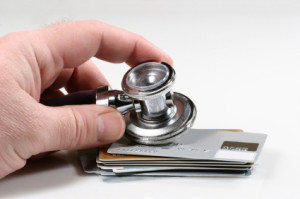Dear Liz: I’m in my early 30s and never carry cash. I charge everything on my debit card. This seems to be a topic of discussion in my office. My co-worker keeps getting his identity stolen and says that using debit cards to pay for everything wreaks havoc on your finances. He says I should use my credit card instead. I just finished paying off all the expenses that creep up when buying a house and really don’t want to start using credit cards again. I don’t think I’d be as good as keeping track of where my money goes when it’s not coming automatically out of my account. But I don’t want to end up losing it all now that identity theft is running rampant. What’s the best solution here?
Answer: What you like most about your debit card — that the charges come directly out of your checking account — is also its greatest flaw. A bad guy who gets access to your account can drain it, and you’re left fighting to get your money back.
Contrast that with fraud on a credit card: You’re not required to pay the disputed charges while the credit card issuer investigates.
That doesn’t mean you should never use a debit card, but you should avoid using it in higher-risk situations. Using a debit card for online purchases isn’t smart, because your computer could be compromised with malware and because merchants often store purchase information in less-than-secure databases.
You also shouldn’t hand your debit card to anyone who could take it out of your sight, such as a waiter at a restaurant, since that person can swipe it through a device called a skimmer to steal the card’s relevant information before handing it back to you. Gas stations and outdoor ATMs can be risky as well, since criminals can more easily install devices to swipe your information than at more protected, better supervised locations.
Even at trusted merchants, though, things can go wrong. Tampered debit card terminals at Michaels craft stores allowed thieves to access customers’ bank accounts.
Using a credit card clearly has advantages, and doesn’t have to be an invitation to debt. Most issuers allow you to set up text and email alerts that let you know when balances exceed limits you set. Apps on your smartphone can help you keep track of charges as well.
Vigilance is the key to limiting the damage caused by identity theft. You should review transactions regularly on all your credit and bank accounts, regardless of what method you choose to pay.
Finally, keep in mind that debit cards do nothing to improve your credit scores, since debit cards are not attached to credit accounts. Light but regular use of credit cards can help achieve good scores, which in turn will save you money on mortgages, auto loans, utility deposits and, in most states, insurance premiums. You don’t need to carry a balance to have good scores, so exercising a little discipline in tracking your balances and paying them in full each month can save you money.




